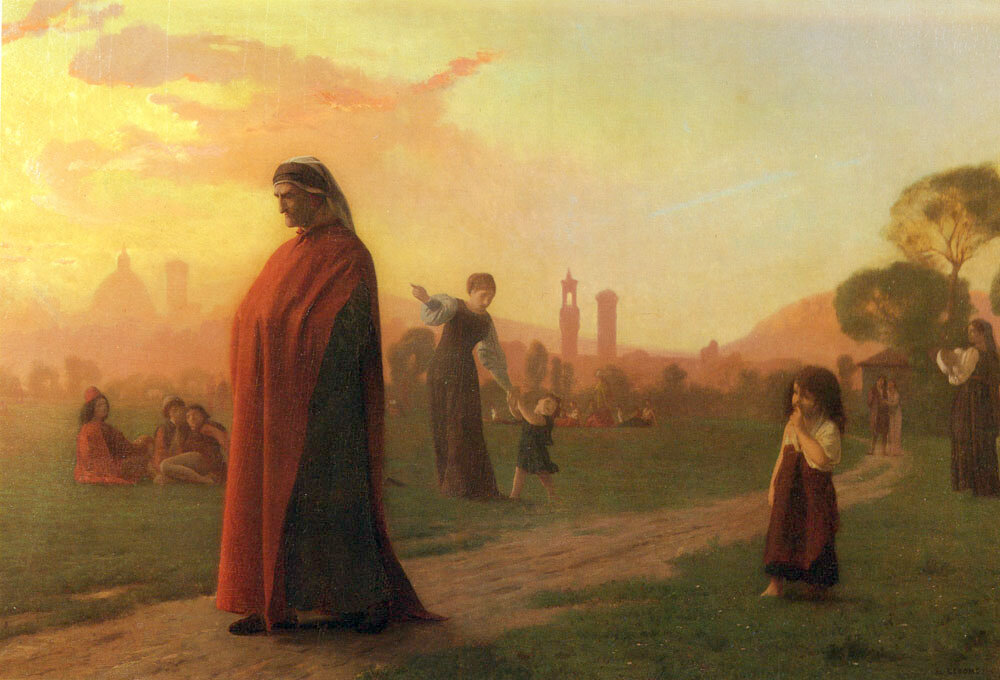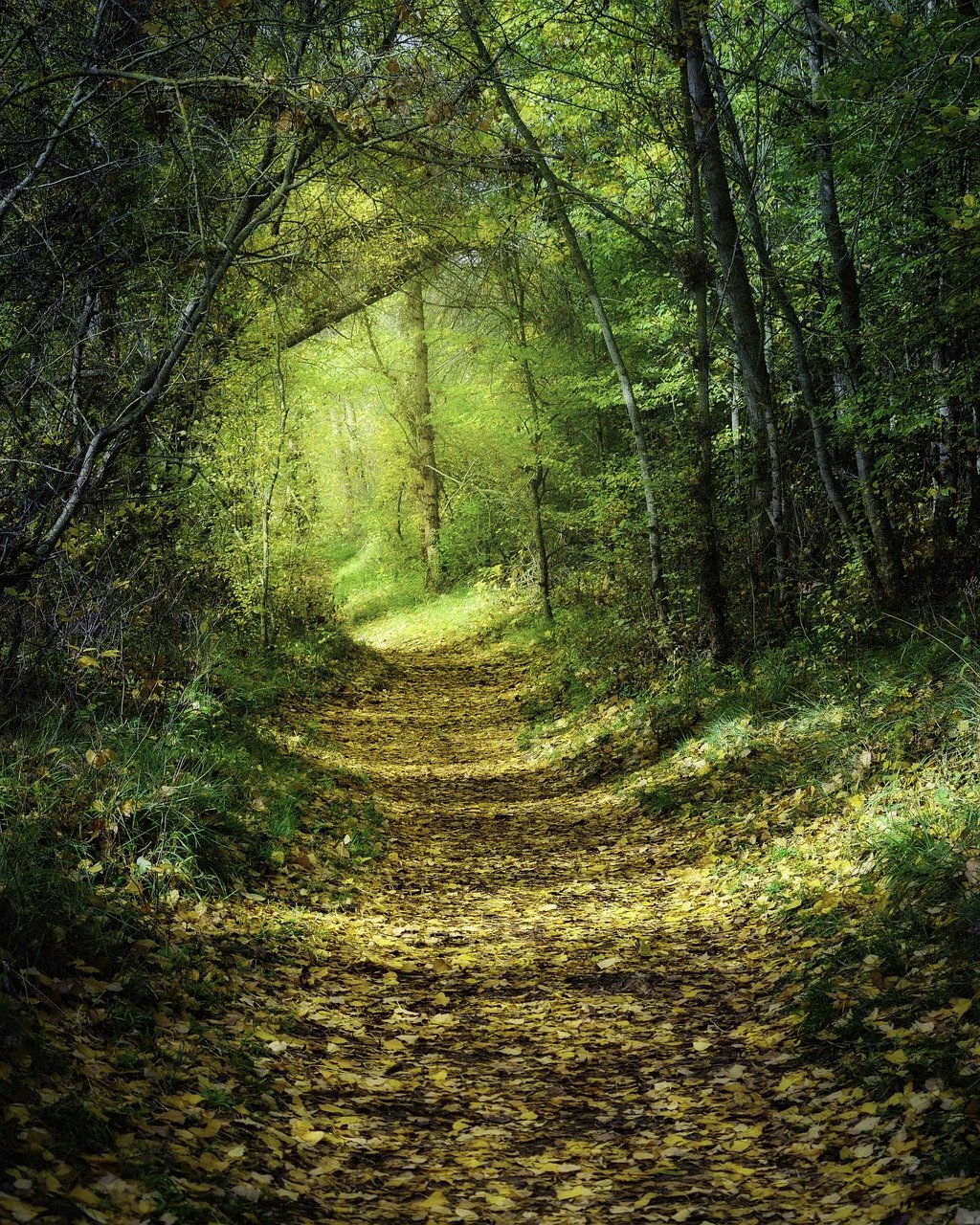
Dante Alighieri
Introduction
In 1954, Giuseppe Prezzolini, Italian author and historian of Italian literature asked; “what is the glory of Dante compared to spaghetti?” He went on to observe “spaghetti has entered many American homes where the name of Dante is never pronounced.”
Dante Alighieri; author of The Divine Comedy, Father of the Italian Language, philosopher, theologian, statesman. In my previous post, I make the point that to truly understand Italian and Italian-American culture you need to understand Dante. That post focuses on Dante the poet, the author of The Divine Comedy.
Canto 1
This past May, I was fortunate enough to walk the Camino de Santiago. One morning, I headed out a couple of hours before dawn, hoping to reach my destination before the sun became too strong. There was no moon, so it was very dark. If there were any stars, I could not see them through the canopy formed by the trees. Although I had a headlamp, walking through an inky black forest was unnerving. I worried about what might be hiding in a clump of bushes farther up the path. Worse yet, what was behind me? I started to sing, hoping to frighten anything that might be nearby. Then I wondered, would I be scaring off potential predators or simply telling them where to find their breakfast? Although sitting in my comfortable, well-lit library, I can now laugh, I was more flustered than I care to admit.
The experience made real to me the confusion and fear Dante must have felt in Canto 1 of the Inferno. I, like Dante, was a pilgrim alone in a dark wood. Even as I say this, I feel the comparison is unfair to Signore Alighieri. Dante was lost and in the dark. He did not have a GPS to guide his steps or a rechargeable LED headlamp to light his path. Yet, even with these advantages, I was still apprehensive. It was not my best morning on the Camino.
Many have long described The Divine Comedy as the greatest work of Western literature. This acclaim is due, in part, to Dante making his journey from bondage to freedom personal to his readers. His poem reaches out and pulls us into the experience of his spiritual enlightenment.
Dante begins by telling us, “Midway in our life’s journey / I awoke to find myself lost in a dark wood.” The tension created between “our life’s journey” and “I awoke” is a subject of a great deal of speculation. What was the authorial intent? Why didn’t Dante simply write in the middle of my life’s journey, I awoke? We might brush off this conflict as sloppy writing, that Dante had intended no deeper meaning here, but I believe this would be a mistake. While I cannot say with any absolute authority what Dante had intended, I think there is a purpose in his choice of words. And, that purpose is an example of how Dante draws us into the poem from the very start.
Canto 28
It is easy to be pessimistic. A pessimist can always find something about which to complain. Looking at recent polling, roughly 63% of Americans think that the country is on the wrong track. For more than the past ten years, over 50% of Americans have felt this way. I should note a slight dip to 49% in May of this year, but the rate has gone back up since then. The cause of this negative outlook is the result of a pandemic more lethal than Covid. A virus whose carriers do so willingly, happily. Dante describes these people in the Inferno.
General
Today, May 9, 2022, I begin my pilgrimage in Saint Jean Pied de Port with the intent of walking the approximately 476 miles to Santiago. A pilgrimage. Me, the agnostic. What am I nuts? Over the past few weeks, I have been asking myself what on earth possessed me to make such a commitment.
This September 14th will be the seven-hundredth anniversary of the death of the greatest poet of western literature, Dante Alighieri.
This claim of Dante’s position in literature, is more than the assertions of an Italophile. Eric Auerbach, the author of Mimesis, said that there is Dante and then all others. Michael Dirda notes that in the early part of the twentieth century, “one important writer after another argues strongly for Dante – even above Shakespeare – as the central figure of European literature, the linchpin of the great classical and Christian tradition of learning and culture.” For Italians, Italian-Americans, and Italophiles Dante bears even greater importance than the rest of the Western World.
This September 13th is the seven hundredth anniversary of the death of Dante Alighieri, the greatest poet in all of western literature.
I am not sure where to go from there with this post. There is so much I would like to say, but I am not quite sure how to put it all together in a logical way that fully expresses my feelings about Dante without sounding trite. So much has been written over the past seven hundred years that you could easily spend the rest of your life reading about Dante without ever reading his actual work. Has it all been said? Is there anything new to say about Dante?








In my January 27th post, Lost and Afraid in Dante’s Wood, I proposed that rather than interpreting the woods as Dante’s sinful life, we should see the forest as the fallen world in which Dante lived. In that article, I discussed how the dangers of the forest are metaphors for the spiritual threats we all face in life’s journey. This article explores the darkness of that wood.